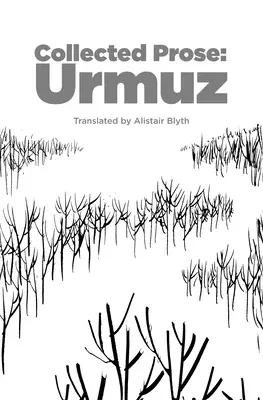Urmuz
(Author)Collected Prose: UrmuzPaperback, 1 December 2023

Temporarily out of stock
Free Delivery
Cash on Delivery
15 Days
Free Returns
Secure Checkout

Part of Series
Romanian Literature
Print Length
90 pages
Language
English
Publisher
Dalkey Archive Press
Date Published
1 Dec 2023
ISBN-10
1628973706
ISBN-13
9781628973709
Description
Product Details
Author:
Book Format:
Paperback
Country of Origin:
US
Date Published:
1 December 2023
Genre:
Eastern Europe
ISBN-10:
1628973706
ISBN-13:
9781628973709
Language:
English
Pages:
90
Publisher:
Series: